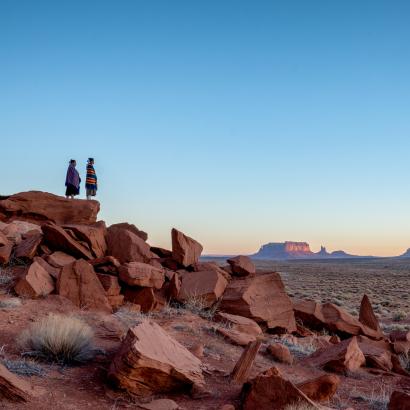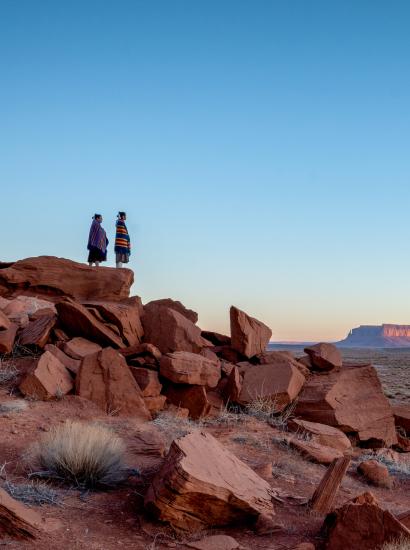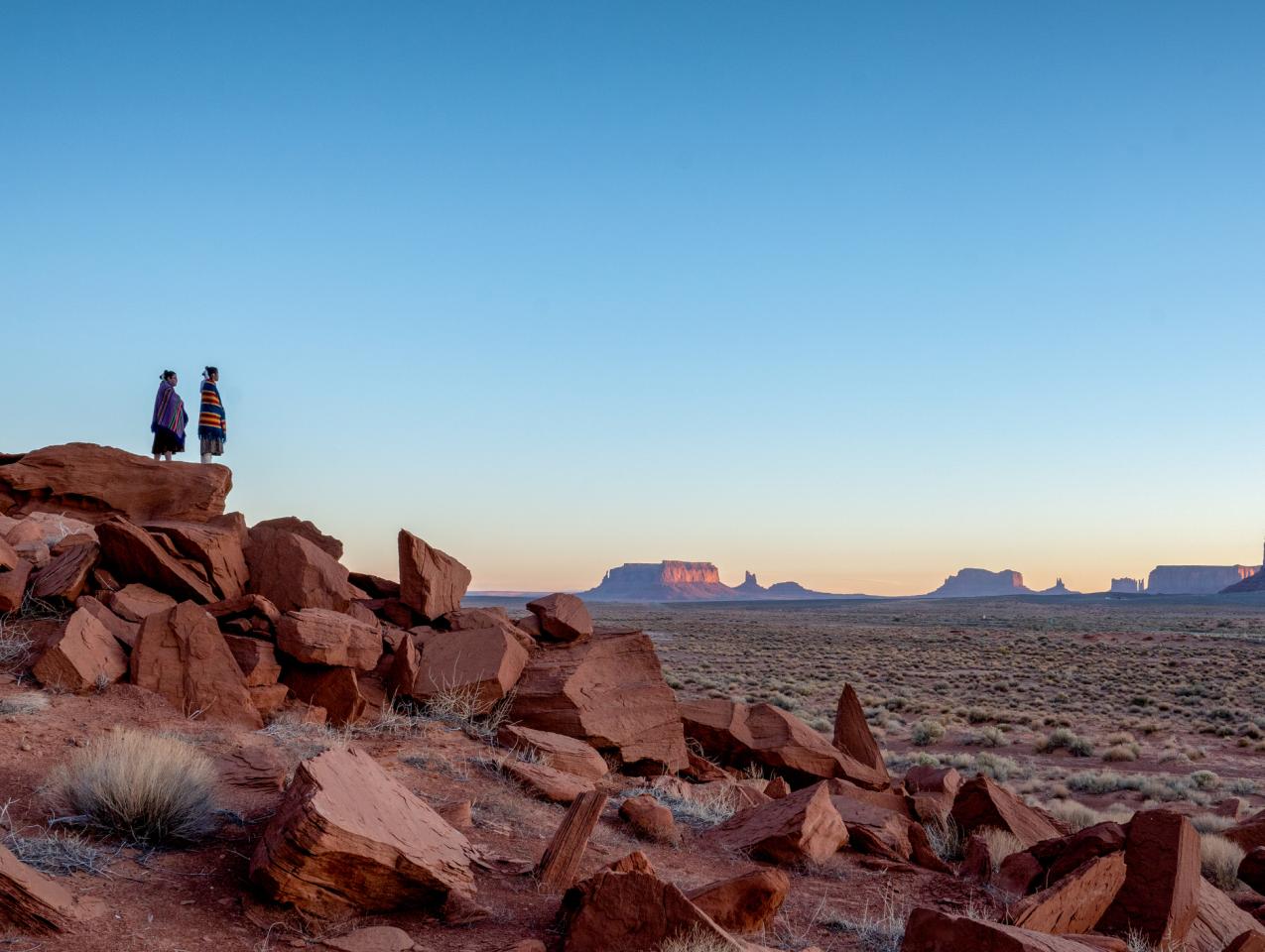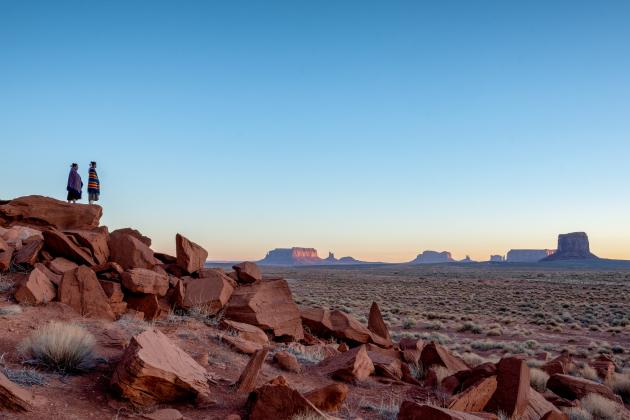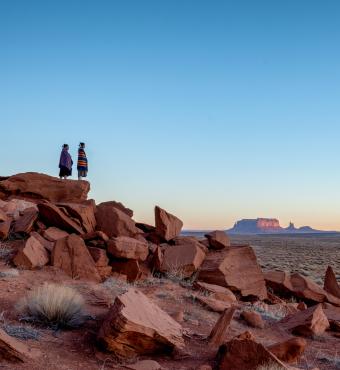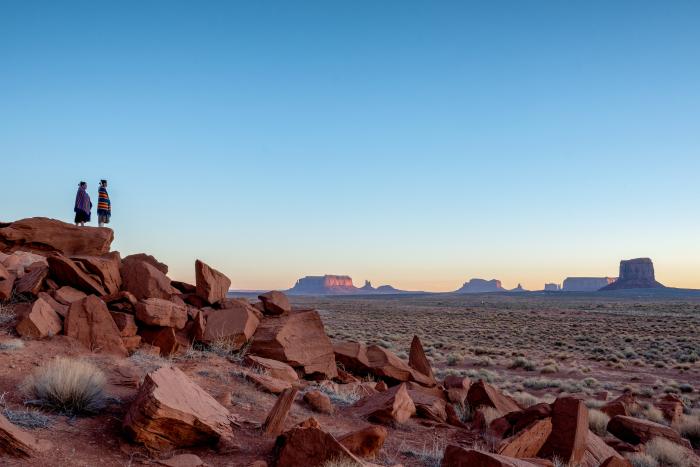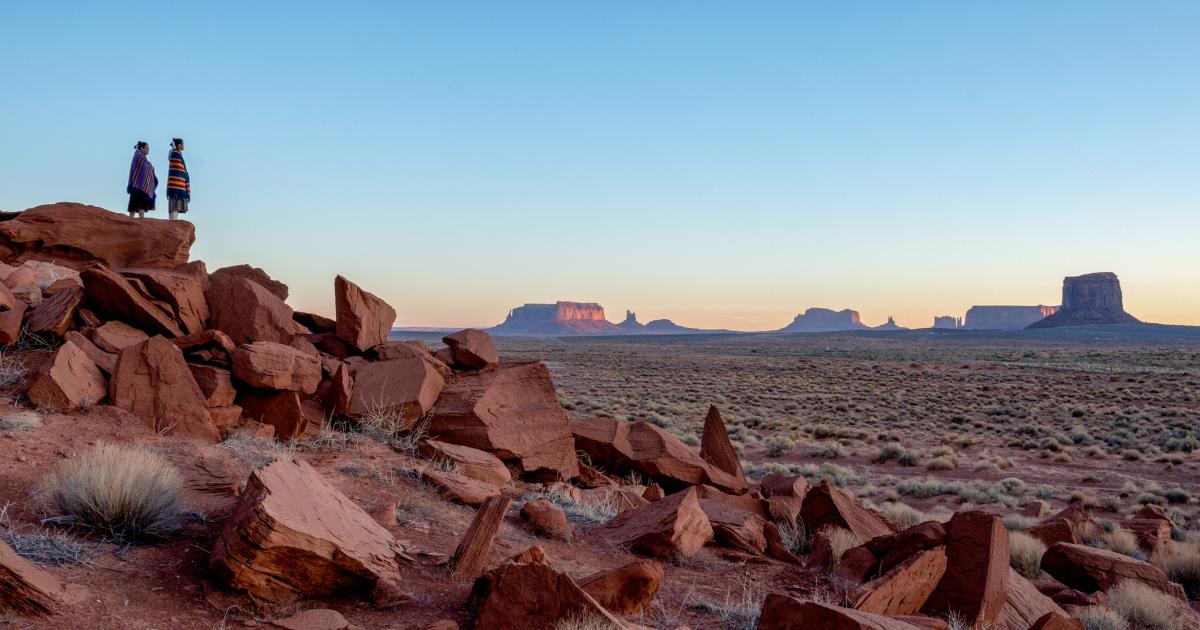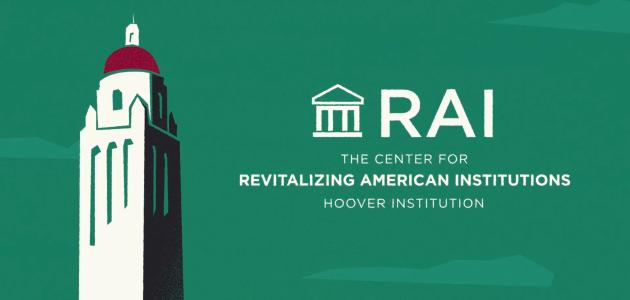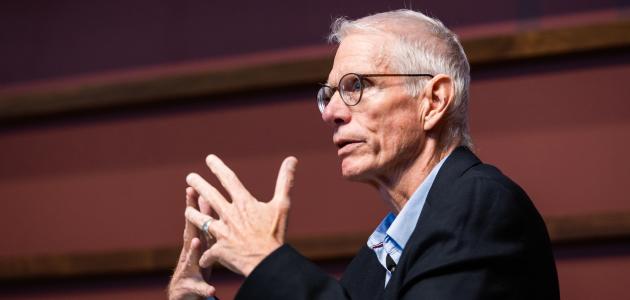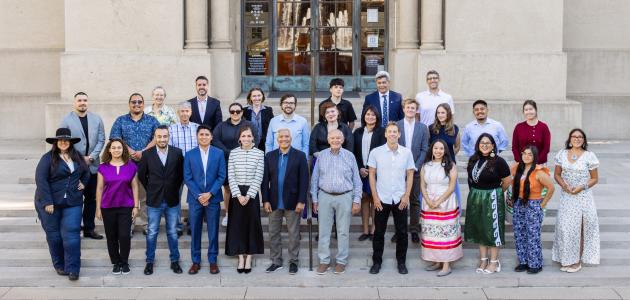Note from the Project Directors Terry Anderson & Dominic Parker
The Hoover Project on Renewing Indigenous Economies (RIE) continues to work toward finding new ways to support economic regrowth in Indigenous communities consistent with respecting their cultures. This Summer 2025 RIE Report updates the progress of the RIE project and shares resources that tribal leaders, scholars, and policymakers can use to rebuild prosperity to Indigenous people. We welcome your input, so please stay in touch at indigenousecon@stanford.edu.
Recent Events

State of the West Symposium on One River, Two Nations
The RIE project cosponsored a symposium on the history, health, and future of the Columbia River at Stanford University on May 9. A collaboration between the Hoover Institution, the Bill Lane Center for the American West, and Stanford’s Institute for Economic Policy Research, the program featured a session on priorities of Native Americans and First Nations in the Pacific Northwest, moderated by Terry Anderson and Dominic Parker. It highlighted conflict over competing uses of the Columbia River for hydropower, flood control, irrigation, and salmon habitat with insights from DR Michel of Upper Columbia United Tribes, Chief Derek Epp of Tzeachten First Nation, Aja DeCoteau of the Columbia River Inter-Tribal Fish Commission, and Justin Parker of the Northwest Indian Fisheries Commission. The symposium also featured presentations from Hoover Director Condoleezza Rice, Washington State’s former Governor Jay Inslee, and former British Columbia’s Minister of Indigenous Relations and Reconciliation Murray Rankin. Click for the conference agenda and video recordings.

Conference on Markets vs. Mandates for the Environment
Experts on energy and environmental policy, journalists, advocates, and Native American tribal leaders gathered at the Hoover Institution on May 13 to consider how environmental policies based more on markets than government mandates can drive natural resource conservation and responsible economic growth. The symposium was part of the Markets vs. Mandates research program at Hoover directed by Terry Anderson and Dominic Parker. Parker moderated a panel discussion, “Energy Wealth of Tribal Nations,” which featured three Native American leaders. C.J. Stewart from the Crow Nation described his people’s 200-year relationship with the federal government but lamented how bureaucracy limits the tribe’s ability to export coal resources. Daniel Cardenas, representing the Pit River Tribe and the National Tribal Energy Association, addressed federal funding cuts to tribal programs, suggesting these might force tribes to reconsider their dependence on federal government support. Richard Luarkie of the Pueblo of Laguna Tribe and the Colorado School of Mines said resource extraction and the revenues they provide Indian tribes are vital to enabling greater exercise of sovereignty. Click for the conference agenda and video recordings.

Native American Mining and Energy Sovereignty Symposium
The RIE project cosponsored the second annual Native American Mining and Energy Sovereignty Symposium, held at the Southern Ute Indian Reservation. The May 20-21 event brought together 200 industry leaders, academics, tribal representatives, and community members to promote energy and mineral sovereignty across Indian Country. It was organized by the Payne Institute for Public Policy at the Colorado School of Mines and directed by RIE contributor Richard Luarkie. Dominic Parker presented in a panel on economic opportunities, emphasizing how self-determination and individual freedom are central to prosperity in Indian Country. The RIE team hosted an informational table, managed by Indigenous Student Seminar alumna Haley Rains, where copies of Terry Anderson and Kathy Ratté’s book Renewing Indigenous Economies (2022) and several of the project’s research essays, briefings, and videos were available.

Conference on Environmental Concerns of Indigenous People
RIE scholars Daniel Stewart and Dominic Parker presented to an audience of academics and tribal leaders from across the world at Stanford University’s Conference on Environmental Justice through the Lens of Indigenous Peoples. The June 2-3 event was organized by Stanford’s Graduate School of Business and Stanford’s Doerr School of Sustainability. Professor Stewart lectured on Native American entrepreneurship, emphasizing the importance of having tribal governance structures and cultural norms that reward innovation and risk taking. Professor Parker described the hidden value of natural resources in Indian Country. He emphasized the persistent role that federal governments in the US and abroad have played in suppressing resource use and conservation—to the detriment of Indigenous peoples’ economic and cultural well-being. Click for the conference’s agenda.
Reading Recommendations

Fifty Years After the Indian Self-Determination Act
In a Hoover Defining Ideas essay, “Letting Tribes Take the Reins,” Terry Anderson and Dominic Parker note that 50 years ago, President Ford signed the Indian Self-Determination Act of 1975, proclaiming “a milestone for Indian people” that would give them a “stronger role” in setting goals and initiatives in matters that concerned them. They note that, unfortunately, true self-determination has yet to arrive. Ford’s statements at the act’s signing presaged the continued role of the federal government in “implementing” that self-determination and in “sharing” responsibility in managing resources. Thus it is that today, although Indian nations refer to themselves as sovereign, federal bureaucracies are still involved in virtually every aspect of life in Indian Country. The essay acknowledges that full self-governance entails risk but argues that it is the only path toward true prosperity. Click here to read the essay.
Stronger Property Rights Slow Deforestation in the Amazon
A new research briefing by Kathryn Baragwanath, Ella Bayi, and Nilesh Shinde, edited by Dominic Parker, describes how a program in Brazil that granted full legal property rights to several Indigenous communities in the Amazon region reduced deforestation and encouraged regrowth of the vital forest. The authors find that in the five years after an Indigenous community in the Amazon received full property rights, deforestation in the territory under their control decreased by 2% and the rate of reforestation increased by 22%. “These outcomes reflect stronger incentives and institutional capacity for the collective land management practices on recognized Indigenous lands, such as organizing patrols, delineating boundaries, and coordinating forest use rules,” the authors write. Click for the Research Briefing.
Doing Business on Indian Reservations
New research from RIE scholars Terry Anderson and Thomas Stratmann examines the barriers and opportunities shaping entrepreneurship on Native American reservations. They conducted interviews with 104 Native American business owners across five Montana reservations to understand their barriers. Participants included owners who had operated their business for at least six months and entrepreneurs either planning to start or having started a business in the past six months. This was a first-of-its-kind congregation for many entrepreneurs to discuss business climates and conditions on their reservations. Participants identified factors involved in thwarting or promoting successful business on reservations, including limited access to capital, bureaucratic land restrictions, labor shortages, addiction, and inconsistent governance. Click here to read the research paper.

Indigenous Student Seminar Alumni in the News
Haley Rains (class of 2023) was named among 50 of the world’s most innovative changemakers at the Stanford Sustainability Summit, held July 14–15. Rains joined other changemakers in telling their stories and coming up with new project ideas to promote future environmental sustainability in Indian Country. The event was sponsored by the Stanford Graduate School of Business and the Stanford Doerr School of Sustainability.
Aldo Aragon (class of 2023) recently completed his first year as a postbaccalaureate fellow at Dumbarton Oaks, a Harvard University research facility and museum in Washington, DC, dedicated to Pre-Columbian studies. This fall, Aragon will defer law school plans, instead leveraging his undergraduate (Indigenous) history degree from Harvard College to serve a four-year officer commission in the US Air Force.
About the Renewing Indigenous Economies Project
The Hoover Project on Renewing Indigenous Economies is dedicated to understanding how the rich history of governance, entrepreneurship, and trade allowed indigenous peoples to thrive before colonization and how restoring these traditions can help rebuild indigenous economies, cultures, and communities from the ground up.








